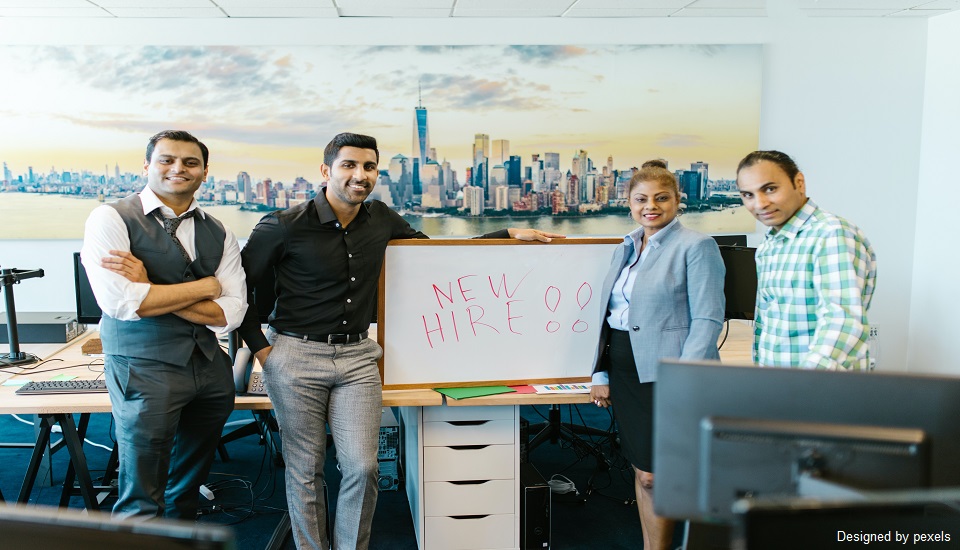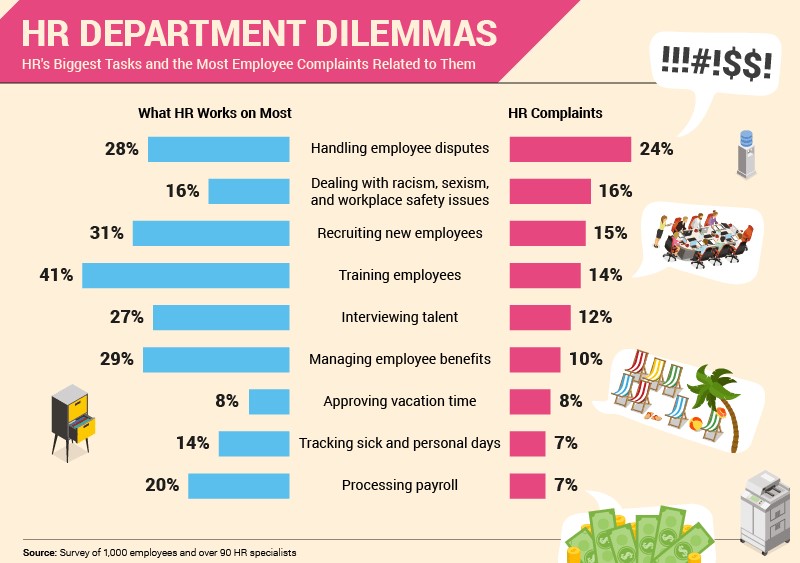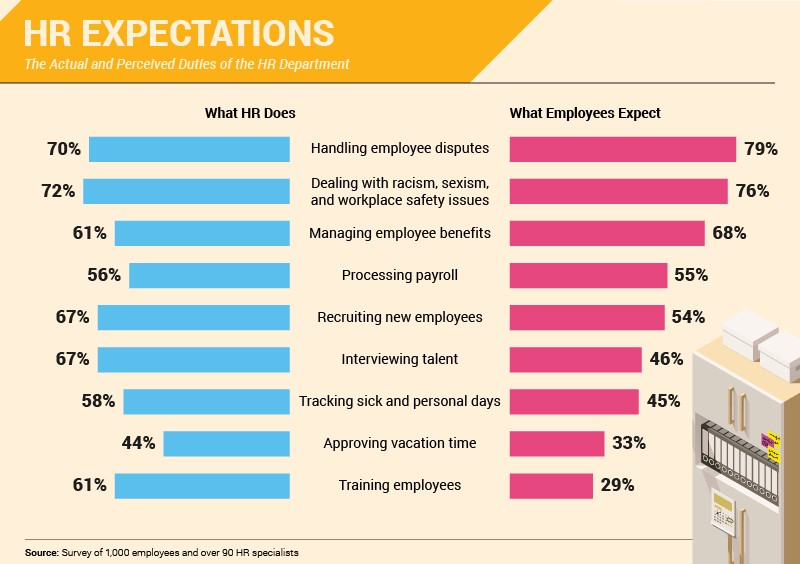
Human Resource Management: Challenges, Solutions And Upcoming Trends
- Posted On : 23rd November 2022
- Written By : Admin
To know what is coming up in the next year we have to have an in-depth knowledge about the challenges that the HR managers have faced in the preceding years. We also have to know about the solutions thought about and strategies adapted. Ideas become trends because they were a solution at some point of time to some unpredictable challenge.
Major Problems In Human Resource Management
Teams working in human resources face significant challenges as their roles grow more expansive and strategic in the early 21st-century. HR encompasses far more than simply the basic functions of hiring, selecting, and retaining employees. It is essential for developing a workforce that supports a company's mission and vision. More relevance comes with new obstacles.
Internal Challenges Faced by the HR Department
Following are the major challenges faced by the HR department ---
1. Candidate retention, motivation, and recruitment
It is arguably the most difficult aspect that HR is now facing. The greatest HR challenge, according to human resources experts, will be retaining the best employees. According to predictions, a growing number of people will be looking for new jobs as the economy expands. Even in times of slow progress or economic distress, workers are more receptive to consider different career paths.
Employers now continue to investigate creative ways to find applicants through social networking, job board adverts, and even more traditional methods like attending career fairs and sending out promotional mailings to attract attention. HR also has a role to play in enhancing workplace skills by determining the causes of employee turnover and resolving the problems.
2. Filling the Skill Gaps
Start by looking at your own internal job requirements and making sure they clearly outline the qualifications required for the position and its responsibilities in order to close the skills gap. You'll end up with a lot of applications for applicants that don't fit your criteria unless the role in the job description is generic. Look for candidates who have their skills unique during the interview, whether it is in person or via virtual footage.
3. Managing with a Limited Budget and Resources
It is no secret that the human resources division frequently experiences staff shortages as well as financing and expenditure shortfalls. A successful team needs adequate funding to function. The team must be ready to budget wisely when that involves working with outside vendors to optimise HR procedures.
4. Maintaining a balance in between the Management and Employees
The human resources manager is in charge of recruiting employees and addressing the demands of executives. While management seeks benefit, engagement, cooperation, loyalty, and honesty, management workers expect fair compensation and benefits, protection and security, safer working environments, job progression, and participatory work.
5. Learning, growth, and reward
To hone and develop knowledge, as well as to increase employee awareness, it is crucial to implement organisational learning systems and training programmes in a coordinated manner. People often receive compensation in the form of pay, bonuses, benefits and perks as a result of their accomplishments. If any of them have performed their duties above the call of duty, a word or letter of appreciation should also be given in order to keep their spirits high.

(Source - paychex.com)
External Challenges faced by the HR department:
Economical aspects
All of the external influences that affect the HR process fall under the category of economic variables. Manufacturers, consumers, competition, and globalisation are among the most significant economic elements. The following is a succinct explanation of these variables:
- Suppliers: In terms of the human resources department, suppliers are any entities that provide the organisation with human capital, such as colleges, universities, teaching institutions, consulting firms, etc. Vendors determine how effectively workers' resources are used.
- Customers: Institutional clients have an impact on human resource activities as well. Consumers today are seen as the kings, demanding high-quality products at reasonable prices. Each worker at the company must contribute to the high quality of the goods and meet the needs of the customer. Any employee has a responsibility to uphold the highest standards for their performance. The commodity standard, which is directly related to the competence and qualifications of the staff, affects sales.
- Competitors: In roles and circumstances involving human capital, competition in a particular industry plays a very important role. A company may receive more favourable terms and circumstances if multiple companies submit job proposals for a single individual because the presence of rivals frequently enhances the importance of hiring procedures and compensation structures. The corporation may need to train its own workforce through careful planning, development, and growth plans if it is unable to find individuals with required skills owing to competition.
- Globalization: In order to increase their economic competitiveness and pursue their interests, human resource managers must take on challenging jobs. Global companies will frequently rearrange their tasks and resources to focus on their key areas of specialisation. Today's marketplace environment is rapidly evolving. Changes of every kind were coming at the firms from all angles. Instead of becoming carried away or caught off guard by passivity, successful administrators are those who can quickly foresee and adjust to these shifts. Businesses hire the incorrect people when they employ staff that are unwilling to show up for shifts. Today, flexibility is the name of the game if businesses are to succeed.

(Source - paychex.com)
How to Overcome Challenges Faced by the HR?
- Effective HR planning: To overcome the aforementioned challenges, HR professionals must carefully plan ahead before beginning the hiring or recruiting process. They must consider the number of jobs, the type of work being performed, the location from where they must employ candidates, the training required of applicants, the manner in which they must conduct interviews, and all other obstacles that may affect the staff.
- Facilitation: HR managers need to be aware of the facilitation that will be provided to new or existing employees. In order to reduce employee churn, he would take special note of women employees and the most qualified and professional personnel. He will see to it that this would be the motivator for workers to be encouraged to give their all.
- Ethical conduct: An HR manager would act ethically to build friendly relationships with employees, to avoid conflicts, and to effectively manage various workforces.
- Coordination: To motivate their staff to take action, HR leaders must work across several workforces. As a result, he will develop a management mind-set both inside of himself and at the workplace.
- Assistance and consideration: The HR managers want others at their place of employment or elsewhere to show them support and empathy too. As a result, an HR professional dealing with people will be compassionate and aware of other people's problems.
- Understanding of employment: An HR manager would be fully aware of the nature of the position and would be able to gauge staff attitudes. A manager needs to understand changing labour market trends, new legislation, and role control in addition to having extensive experience with a variety of personnel. He is interested in finding out what the daily working hours and minimum and median income are.
- Credentials: A different candidate would possess the necessary academic credentials, practical experience, and skills to serve as HR director.
- Fairness: When dealing with employees, an HR manager shouldn't have to be overly strict and demanding.
- Communication: It is essential for effective interactions between departmental managers or HR administrators and their staff members. Business leaders might work on educating employees about the benefits of the transition so that staff members can adjust to changes effectively and pleasantly.
Future HR Trends:
HR managers may adapt the following trends in the near future:
- An emphasis on overall health
- The control of workforce ecosystems
- Definition of new remote and mixed work approaches
- The CHRO's evolving functions
- Hr steps into the metaverse.
- Establishing purpose-driven organisations
- Including employees at all stages of their careers
- Empowering managers and leaders
- Higher spending on workers without desks
- The development of algorithmic hr
- Redefining workplace education
It's time for HR to take the initiative, make the most of opportunities that the future period will offer, and reposition the function's value proposition as a business leader and creator of competitive people skills.
